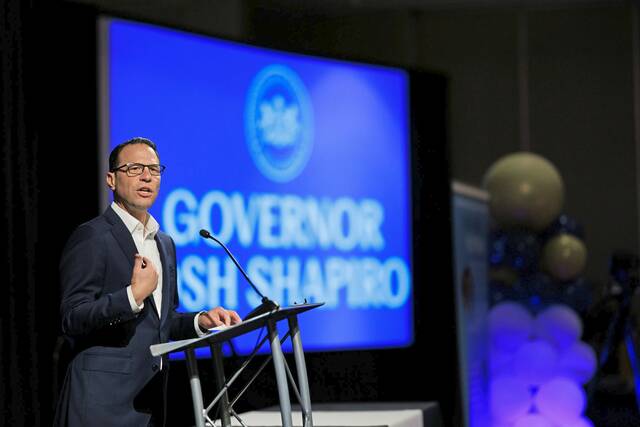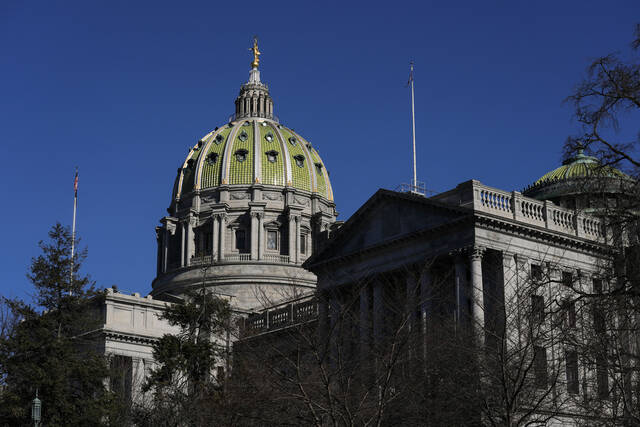A pair of committees in the Democrat-led state House on Wednesday shot down proposals from the GOP-controlled state Senate to end Pennsylvania’s budget impasse and address funding problems at the state’s transit agencies.
Now, with the budget impasse standing at 44 days and Pennsylvania’s largest transit agency preparing to begin imposing deep service cuts, the governor’s office and leaders in the House and Senate must return to the negotiating table in hopes of hammering out deals on both issues.
“My hope is that over the next few hours and days, we can get a spending plan that is serious, that takes care of the state’s mandatory payments as well as all the other things we know are necessary to move Pennsylvania forward,” House Appropriations Chairman Jordan Harris, a Democrat from Philadelphia, said following a vote to reject the Senate budget proposal passed Tuesday night.
The Senate GOP’s $47.6 billion spending plan would have maintained spending levels from last fiscal year’s budget. It would have been about $3 billion smaller than the budget that passed the House in mid-July before stalling in the Senate and nearly $4 billion smaller than Gov. Josh Shapiro’s $51.5 billion budget proposal.
Comparing the state’s financial situation to people’s households, Harris said, “Your electric bill at home goes up every year. Your phone bill goes up. All of your costs of living go up every year. So do the commonwealth’s.”
“If you’re giving us the same (spending) number as last year, we are actually providing a cut in services across the board,” Harris added.
Proponents of the GOP bill described the proposal as a temporary solution, allowing money to continue flowing to schools, hospitals and other important social services while negotiations continue on several thorny budgetary issues that slowed negotiations.
“Without any spending plan in place, no dollars are flowing. All of those entities (that receive state funding to provide services) are getting nothing now,” said Rep. Jim Struzzi, R-Indiana County, minority chairman of the Appropriations Committee.
“We understand that this is not the end of the process. This is simply to sustain those essential government services that people need until we can reach an agreement on an overall spending plan … and these other big issues that we have been talking about for several months now,” he added.
The House Rules Committee voted against a Senate proposal that would have provided $1.2 billion over two years for transit agencies and road and bridge projects.
Officials said most of that money — about $750 million — would have come from the Pennsylvania Public Transit Trust Fund, designed to provide money for capital improvements at transit agencies such as replacing buses and trains, upgrading rail lines and signals, and improving facilities. The trust fund contains about $2.4 billion today.
The Senate plan would have dedicated $292.5 million to help transit agencies cover operating costs and another $292.5 million for road and bridge projects across the state during this fiscal year. Those amounts would have increased to $300 million in the 2026-27 fiscal year.
“This is certainly not a proposal that helps us because of the deference of capital dollars,” Scott Sauer, general manager of the Southeastern Pennsylvania Transit Authority, told the committee.
In addition to the agency’s $200 million operating deficit, Sauer said SEPTA has a $10 billion backlog of needed capital improvements. It relies on the $400 million it receives annually from the trust fund to help pay for such projects.
“The use of capital dollars for operating does not solve our problem. In fact, it creates a new one,” added PennDOT Secretary Mike Carroll, a former state representative.
“We have to wait for a proposal that is both immediate and sustainable. Two years is not the sustainable solution we were hoping for,” Sauer told the committee. “We need something that’s going to carry us into the future so we can do all the things that people want us to do to be more efficient and more cost-conscious.”
House Minority Leader Jesse Topper, a Republican from Bedford County who is minority chairman of the Rules Committee, said, “This is something that could certainly stop a crisis from happening. … I believe this is something that is appropriate for the times we are in.”
SEPTA has said that without a plan for increased, permanent funding in place by Thursday, 20% across-the-board service cuts would take effect starting Aug. 24. It would later raise fares, impose a hiring freeze and then, on Jan. 1, cut more service — potentially resulting in the agency eliminating half of its current service in a span of just a few months.
SEPTA isn’t the only transit agency under financial strain. In June, Pittsburgh Regional Transit passed an operating budget for the 2026 fiscal year that addressed a projected $100 million deficit by planning to deeply cut service, lay off workers and raise fares, starting in February.
On Monday, the House passed a plan to increase the share of existing sales and use tax revenues dedicated to transit agencies to provide similar funding for both transit and roads and bridges as the Senate plan. The Senate hasn’t acted on it.








